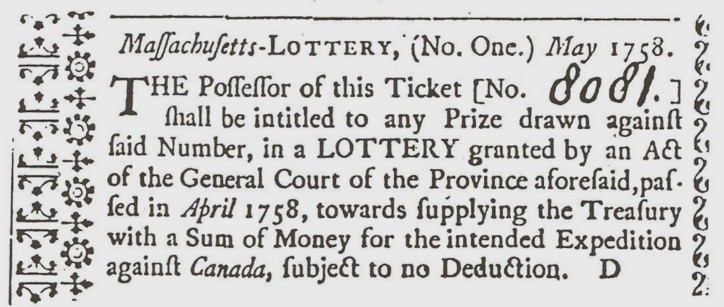Lottery History
In ancient times, drawing lots for land was common, and it became a widespread practice in Europe during the late fifteenth and sixteenth centuries. In the United States, the lottery first became tied to government funding in 1612 when King James I of England used it to fund the colony of Jamestown, Virginia. Since then, the lottery has helped raise funds for towns, wars, and public-works projects. Listed below are some of the more interesting uses of the lottery today.
As an alternative to illegal gambling, lotteries are often government sponsored. Participants match a set of numbers or symbols to win a prize. While lotteries are believed to have originated in the earliest human societies, the modern version of the lottery dates to the sixteenth century. The game helped fund government projects, including building roads, canals, courthouses, and other public facilities. In the United States, lotteries have benefited both the government and citizens, raising significant sums of money for public infrastructure.
The NGISC report did not provide any evidence that lottery officials intentionally target the poor, or even intentionally promote gambling to poor people. In fact, it would be unethical to market to the poor. Additionally, people who buy lottery tickets outside of their neighborhood do not necessarily live there. Higher-income individuals frequent these neighborhoods and pass by them while en route to work. High-income neighborhoods, in contrast, have few lottery outlets. There is a growing trend of a “lottery craze” that’s sweeping the nation.
Increasing numbers of internet users and mobile devices have increased the number of lottery retailers in the United States. The popularity of online lottery retailers has led to many states limiting the number of retailers. Most states allow for multiple retail locations and don’t limit the number of stores. Most states do not have limits on how many people can play the lottery, but they do have rules and regulations. In addition to the internet, lotteries have become popular in the United States.
During the American Revolution, the lottery was used to fund public schools, churches, and libraries. It also helped to finance the founding of the oldest colleges in the country. Benjamin Franklin organized a lottery to raise money for the city of Philadelphia’s defense. The Continental Congress used the lottery to encourage the Colonial Army during the American Revolutionary War. State-sponsored lotteries continued to be popular for several years after the war ended. Some states have banned the use of lotteries altogether.
Historically, lottery operators in the United States have been largely private. In the 1790s, George Washington launched a lottery in the state of Virginia to fund the building of Mountain Road. In the Revolutionary War, Benjamin Franklin supported the use of the lottery to fund cannons. In Boston, John Hancock ran a lottery to re-build Faneuil Hall. In the nineteenth century, the lotteries were widely successful.
The lottery’s history can be traced back to the 17th century, when it first began in the Netherlands. The state’s lottery is one of the oldest continuing in the world. The Dutch government had been in the habit of holding lotteries in order to raise funds for the poor. During this time, the lottery was often a form of taxation. In the late seventeenth century, the State of New York began operating a public lottery.
The earliest recorded lotteries involved money prizes. In the Low Countries, the practice of holding public lottery draws was common to raise funds for the poor. The first European lotteries were held for a number of different purposes. In 1520, the French emperor, Francis I, allowed public lotteries in several towns. In the same year, the Italian city-state of Modena held a lottery to raise funds for the construction of the city’s walls.
The practice of drawing lots for property has its roots in ancient times. In the Old Testament, Moses was instructed to take a census and divide the land by lot. The practice of holding lottery draws is not only a part of the Bible, but is also a common part of culture. In medieval Europe, a lotteries were held in a number of cities, including Rome, where it was common for a single person to share a single lot of property was a form of taxation.
